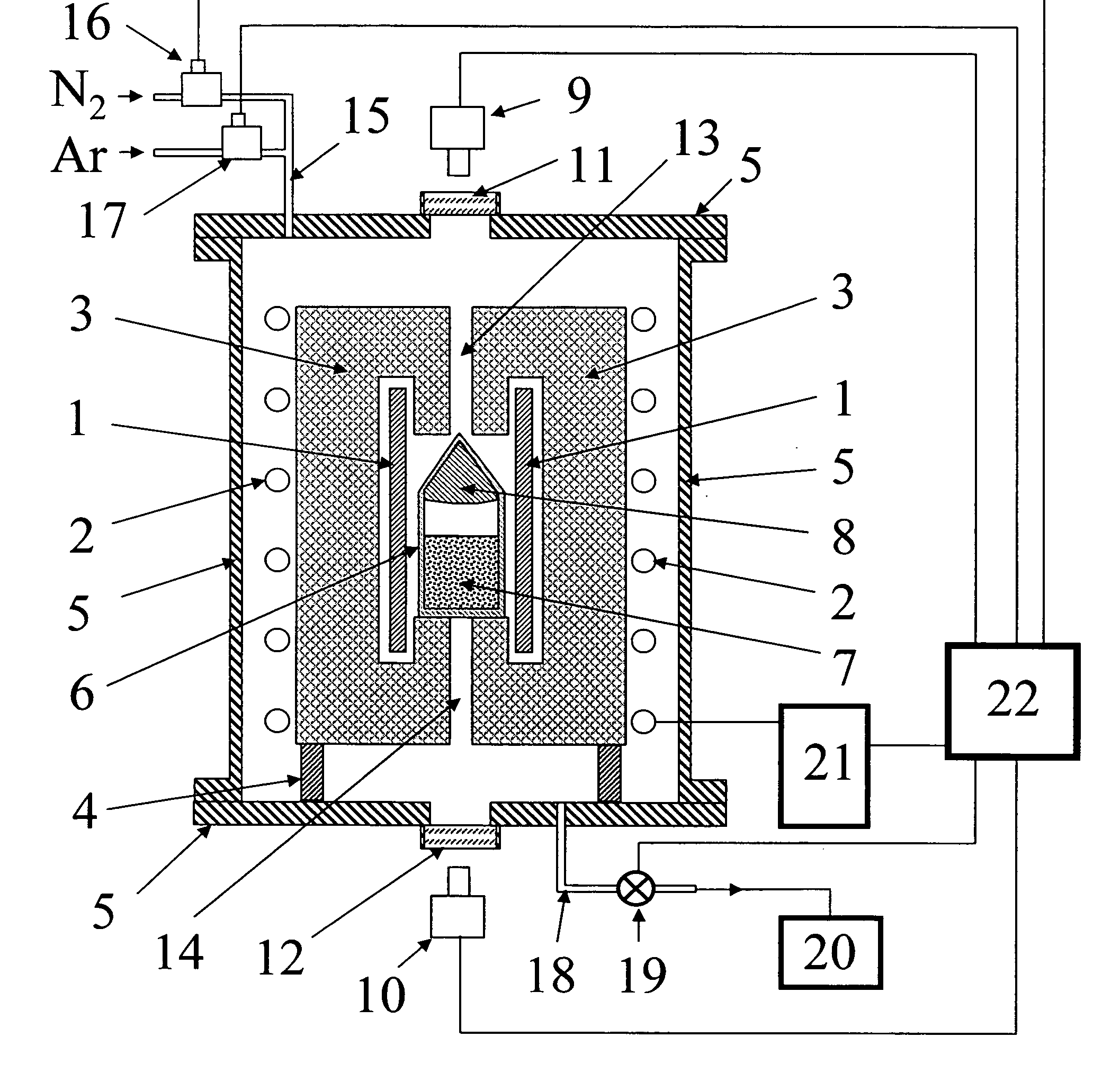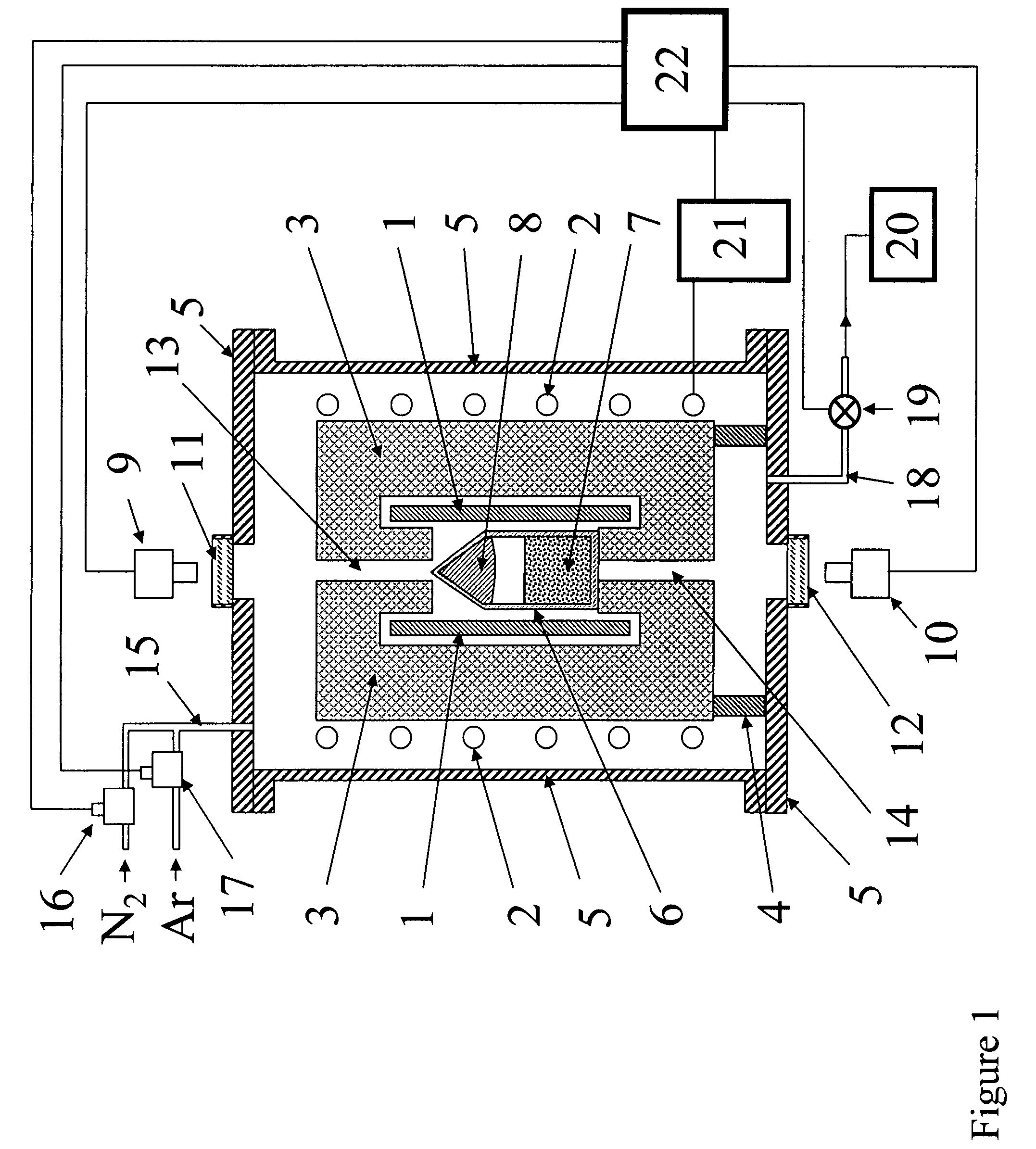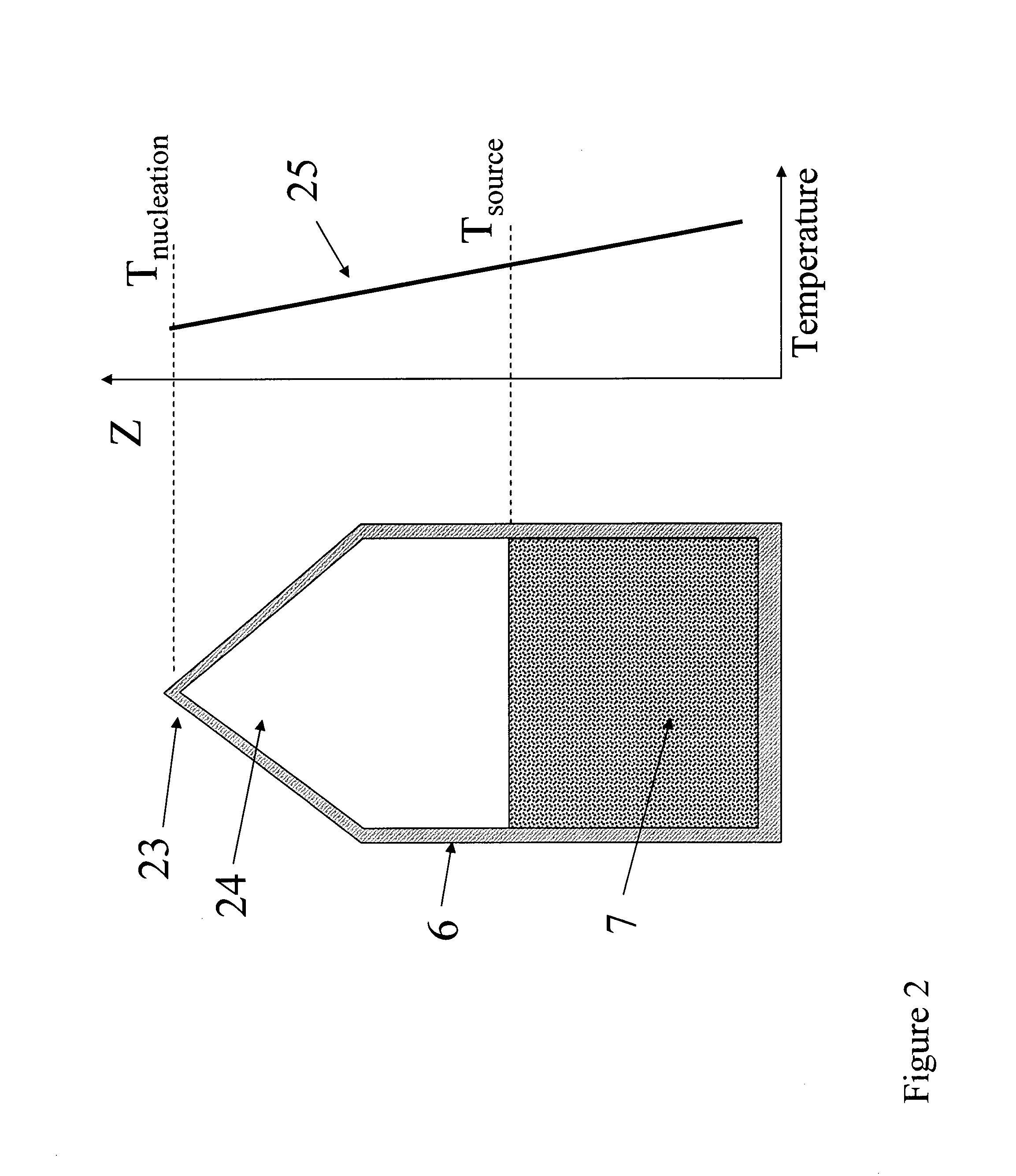Method and apparatus for aluminum nitride monocrystal boule growth
a technology of aluminum nitride and monocrystal boule, which is applied in the direction of crystal growth process, polycrystalline material growth, chemically reactive gas, etc., can solve the problems of slowing down the diffusion transport of vapor species, reducing the growth rate, and limited aln crystal boules to small usable lengths (usually less than 10 mm), so as to reduce the stress and high boule growth rate
- Summary
- Abstract
- Description
- Claims
- Application Information
AI Technical Summary
Benefits of technology
Problems solved by technology
Method used
Image
Examples
example 1
[0122]AlN polycrystalline powder of about 30 g was placed into a crucible made of tantalum metal with a wall thickness of about 1 mm to 2 mm. The crucible with AlN powder was placed into an inductively heated PVT growth furnace with a graphite susceptor and graphite-fiber-based thermal insulation. The crystal growth was carried out in the following steps:[0123]a). evacuating the PVT growth chamber to a pressure less than 0.1 torr;[0124]b). ramping up the system nitrogen pressure to 500 torr by flowing a nitrogen gas into the furnace chamber;[0125]c). heating the crucible containing the AlN source material to a source material temperature of about 2325° C. and a temperature of the crystal end of the crucible of 2250° C. in about a time period of about 4.5 hours;[0126]d). maintaining the system nitrogen pressure, the source temperature, and the temperature of the crystal end of the crucible substantially constant at about 500 torr, 2325° C., and 2250° C., respectively, for about 17 ho...
example 2
[0130]To demonstrate growth of an AlN crystalline boule in a crucible made from tantalum and subsequently carbonized at both the interior and exterior surfaces, a tantalum crucible with a wall thickness of about 1 mm to 2 mm in the portion for housing the crystal boule was fully filled with a graphite powder of 1 mm to 4 mm in chunks, and then placed into an inductively heated PVT growth furnace with a graphite susceptor and graphite-fiber-based thermal insulation for a carbonization run. The carbonization procedure was as follows:[0131]i. evacuating the PVT growth chamber to a pressure less than 0.1 torr;[0132]ii. ramping up the system nitrogen pressure to 500 torr by flowing a nitrogen gas into the furnace chamber;[0133]iii. heating the tantalum crucible containing filled with graphite powder to a temperature at the bottom end of the crucible of about 2300° C. in a time period of about 3.5 hours;[0134]iv. maintaining the system nitrogen pressure and the temperature of the crystal ...
PUM
| Property | Measurement | Unit |
|---|---|---|
| gas pressure | aaaaa | aaaaa |
| gas pressure | aaaaa | aaaaa |
| temperatures | aaaaa | aaaaa |
Abstract
Description
Claims
Application Information
 Login to View More
Login to View More - R&D
- Intellectual Property
- Life Sciences
- Materials
- Tech Scout
- Unparalleled Data Quality
- Higher Quality Content
- 60% Fewer Hallucinations
Browse by: Latest US Patents, China's latest patents, Technical Efficacy Thesaurus, Application Domain, Technology Topic, Popular Technical Reports.
© 2025 PatSnap. All rights reserved.Legal|Privacy policy|Modern Slavery Act Transparency Statement|Sitemap|About US| Contact US: help@patsnap.com



